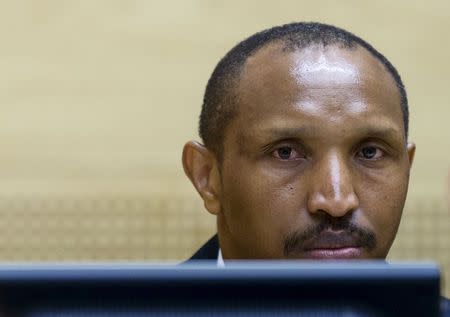War crimes court hears of rape, slavery at trial of Congo's Ntaganda

By Thomas Escritt THE HAGUE (Reuters) - Accounts of rape and sexual slavery during the war in Congo in the early 2000s dominated the second day of militia leader Bosco Ntaganda's trial at The Hague war crimes court on Thursday. Lawyer Sarah Pellet described the pain girls suffered as forced "wives" to senior officers and said that girls as young as 12 were abducted into Ntaganda's Union of Congolese Patriots (UPC) and forced to be sexually available to soldiers. Lawyers for Ntaganda, who denies all 18 counts of crimes against humanity and war crimes in the 2001-02 war in northeast Congo's Ituri province, are due to make opening statements at the International Criminal Court (ICC) on Thursday. Prosecutors at the court accuse him of standing by as ethnic Hema troops under his command massacred ethnic Lendu civilians - who lived on land rich in oil, diamonds and gold which he wanted for himself, and of raping enslaved child soldiers. "I did everything - housework, cleaning their uniforms. They raped me. My body was hurting all over," Pellet quoted one victim, who was 12 years old at the time, as saying. Other rape victims were spurned by their families for falling pregnant. One 13-year-old said becoming pregnant with the child of a senior commander was a "relief" from the daily round of sexual favours she otherwise had to offer fighters, Pellet said. Before he gave himself up to the ICC in 2013, Ntaganda fought for 15 years in wars that killed some 5 million people in the Democratic Republic of Congo over the past two decades. Born in Rwanda but raised in Congo, he began his military career alongside Tutsi rebels who seized control of Rwanda in 1994, bringing to an end the genocide in which 800,000 died. Indicted in 2006, he was on the run for years, fighting in a several conflicts on the side of M23 rebels who, according to U.N. experts, are backed by Rwanda, though Kigali denies this. Two years ago, alone and fearing his life, he gave himself up at the U.S. embassy in Kigali, asking to be handed to the ICC. (Editing by Louise Ireland)

